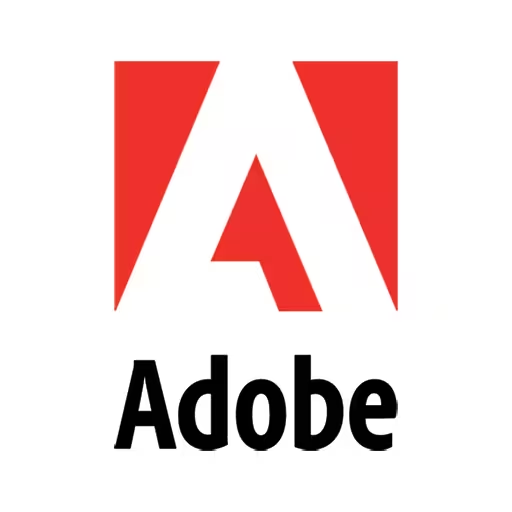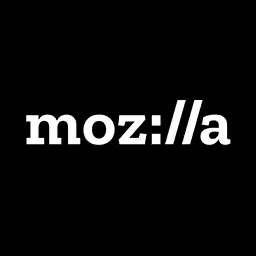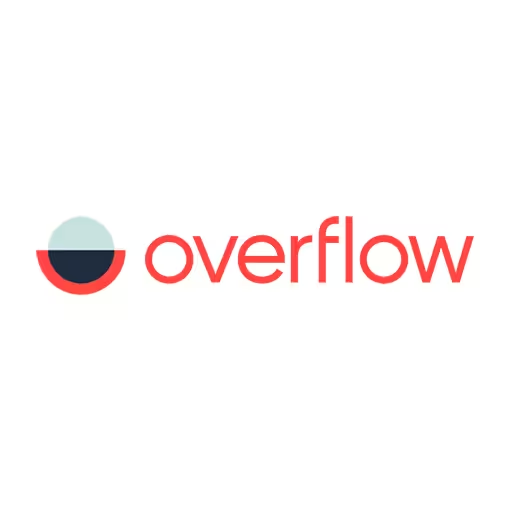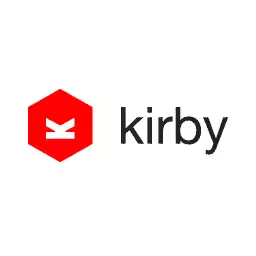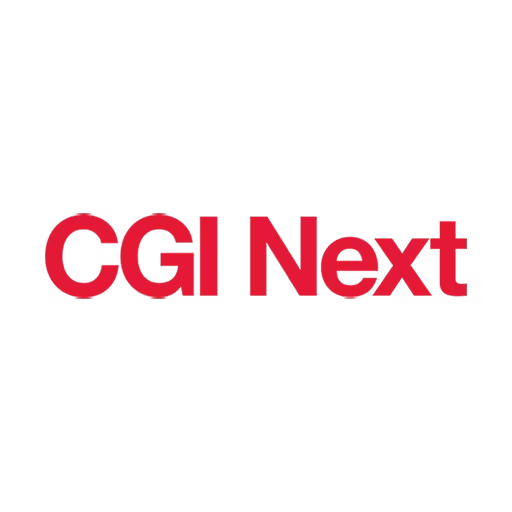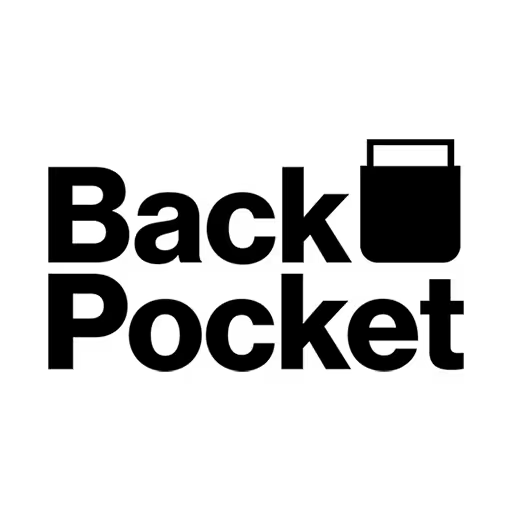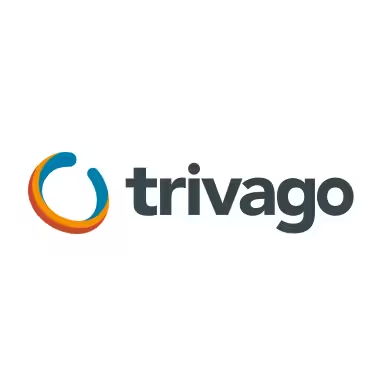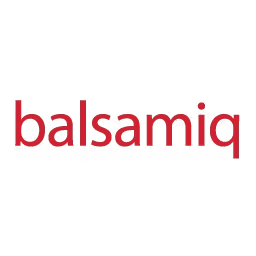Mike Monteiro
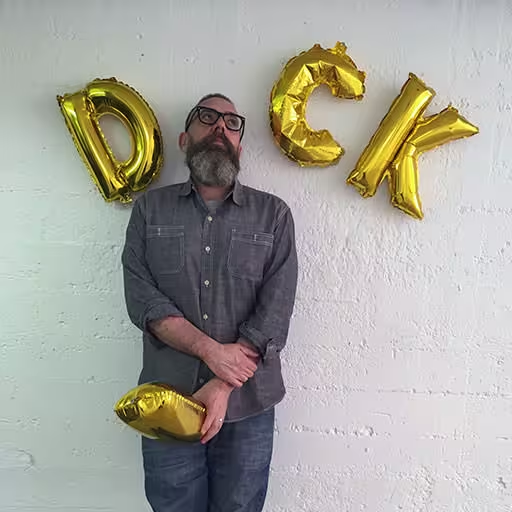
Mike Monteiro is the co-founder and design director of Mule Design. He prefers elegant, simple sites with clear language that serve a real need. He prefers that designers have strong spines. Mike writes and speaks frequently about the craft and business of design.
He loves client services so much he wrote two books on the topic, Design is a Job and You’re My Favorite Client, both from A Book Apart. Mike received the 2014 Net award for Conference Talk of the Year for his inspirational polemic on responsibility, “How Designers Destroyed the World.”
Talk: How to Build an Atomic Bomb
We were supposed to build a better world. Design and technology was supposed to point the way towards utopia. Instead, we designed a nightmare. Find out why this was our fault and what you can do to help fix it.
Transcription
[Digital music]
[Applause]
[Music]
Mike Monteiro: Drama.
[CFO$ singing “Glorious Domination”]
(Glorious. No, I won’t give in. I won’t give in ‘till I’m victorious.)
Mike: How are you doing?
[Applause, cheers]
[Music]
(Glorious. No, I won’t give in. I won’t give in ‘till I’m victorious.)
Mike: It goes on for a while.
(And I will defend. I will defend. And I’ll do what I must. No, I won’t give in. I won’t give. Oh, so glorious. Until the end. Until the end.)
Mike: Hi, Dusseldorf. What’s up?
Audience: [Laughter]
Mike: First of all, a couple of caveats. One, when I talk about design, I’m talking about designers, developers, content strategists, the people who do your budgets. Anybody who touches anything that you built has something to do with what you’re designing. This is for everybody.
Caveat number two: When I first did this talk in Copenhagen a couple of months ago, the conference organizer went through the attendee list and sent me this.
Audience: [Laughter]
Mike: If there is anybody from the International Atomic Energy Agency here today, please let me know.
Audience: [Laughter]
Mike: Great. By the way, it’s great going through customs too.
Audience member: Mm-hmm.
Audience: [Laughter]
Mike: We spent a lot of time over the last couple of days talking about how to build the things we build. I think it’s fair that we spend a little bit of time talking about how people are using the things that we build. On September 23, 2017, Donald Trump declared war on North Korea. It was 8:00 p.m. He’d just eaten dinner. Probably a couple of cheeseburgers, fries, a Coke, or maybe something that came in a big bowl of failure from KFC.
Audience: [Laughter]
Mike: And, he’s probably watching Fox News while he did this, so he’s getting angry. His arteries are clogging up. And, he finally gets angry enough to take a shit because he can only shit when he’s angry.
Audience: [Laughter]
Mike: And, if he’s shitting, you better believe he’s tweeting.
Audience: [Laughter]
Mike: So, he tweets out a declaration of war to North Korea. And, if you’re wondering whether it’s a declaration of war, the thing is, the person who it matters most whether it’s a declaration of war or not, they kind of weren’t wondering. North Korea decided it was a declaration of war and they, in turn, threatened to start shooting down U.S. bombers.
Of course, once the North Koreans and the Americans go at it, the Russians get involved. The Chinese get involved. At some point, you’re going to get fucked.
Audience: [Laughter]
Mike: And, we get blown up. An American president, while taking a cheeseburger shit, used Twitter to threaten a foreign country with nuclear annihilation. And, by the way, I was reading the other day that now that the Koreans are talking, there’s talk about Trump getting a Nobel Prize.
Audience member: What the--?
Audience: [Laughter]
Mike: I am not shitting. Which, is kind of like giving Hitler a Nobel Prize for getting the U.S. and Soviets to work together.
Audience: [Laughter]
Mike: Good job there.
[Applause]
Mike: Luckily, Twitter’s CEO Jack Dorsey was on it.
Audience: [Laughter]
Mike: He took a look at Twitter’s rules and policies. He compared them to Trump’s tweet, and he made a very methodical list of which rules a nuclear war threat was breaking.
Audience: [Laughter]
Mike: It turns out it’s almost all of them.
Audience: [Laughter]
Mike: And then, he did what he would have done with any other user behaving badly on his platform. He suspended Trump’s account. He behaved ethically. He moved quickly. I can’t even finish this, can I?
Audience: [Laughter]
Mike: Because, no, son, you fucking did not.
Audience: [Laughter]
Mike: He did none of those things. He did nothing. He hid. A U.S. president used his platform to declare war on another country, to threaten the citizens of another country with nuclear annihilation, violating all of the platform rules and regulations in the process, and Jack Dorsey did and said fucking nothing.
Now, on September 25th, 48 hours after the initial Trump tweet, Twitter co-founder Biz Stone finally addressed the issue in a short, tepidly written piece on Medium. You can feel the leadership jumping off the page when it starts with, “These are not my words.”
Audience: [Laughter]
Mike: But, here’s the most important sentence in this letter.
Audience: [Laughter]
Mike: That’s an actual photo.
Audience: [Laughter]
Mike: “This has long been internal policy and we’ll soon update our public-facing rules to reflect it.” There were always two different sets of rules. We just didn’t tell you. And, that’s immediately followed by a promise to remain transparent. There were always different sets of rules. We just didn’t tell you.
Now, some of you have always understood that there are two different sets of rules. For those of you just finding out, “Welcome.”
Audience: [Laughter]
Mike: It’s almost a throwaway line, but it holds a very important key to Twitter’s thinking. In short, we’re going to move the goalposts to wherever they need to be. Twitter updating their policy on the fly to explicitly avoid banning Trump. They’ve done it in the past, and they’re going to continue to do so.
And, at the same time, they’ll tell you, as he did in that letter, that Donald Trump is held to the same rules as all other users. Now, after reading Biz’s piece on Medium, I told him that it sounded hollow. To be completely transparent about it, I actually told him it was 100% bullshit, and this was his reply to me. “Mike, this is the hardest time to stick to principles. The easy way out would be to ban. That sets a precedent of subjectivity.” [Long exhale]
Audience: [Laughter]
Mike: Changing the rules to fit the situation is the exact opposite of principles and the exact meaning of subjectivity. It’s cowardly and it’s opportunistic. And, I’m assuming that one of the principles Biz believes he is referring to is free speech. And, since it’ll be the first question that comes up after this talk, let’s go ahead and handle it right here.
Here is the First Amendment of the Constitution in its goddam fucking entirety. It’s very short and to the point. And, it states that the government cannot restrict your speech. It does not apply to Twitter, which is a private service. Also, if Biz cared about free speech as much as I do, maybe he should be fighting for the rights of those who’ve been silenced, not the rights of those who have silenced them. So, Biz can fuck right off.
[Applause]
Mike: Biz also argues that Trump’s tweets are newsworthy, and I don’t disagree. I guess it’s fucking newsworthy to see if somebody wants to threaten another nation with nuclear war on your platform. Alas, Twitter isn’t a media company. They want to be a media company. They think they’re a media company, but they don’t understand the rules. If they did, they would know that the function of a media company cannot be to create the news.
Audience: [Laughter]
Mike: Let’s do a little story here. Let’s say I run a newspaper and, just to indulge in a little hard to believe fantasy, let’s say that my newspaper isn’t doing too well financially. Well, I’ve got to figure out how to make some money and, it turns out, people buy more newspapers when there are things like gruesome murders in it. So, I decide that we need to get more murders to write about, and the easiest way to do that is maybe get some more guns on the street. And, I get my reporters because this is my fantasy and, in my fantasy, my newspaper still has reporters.
Audience: [Laughter]
Mike: I get reporters to start handing guns out to people outside my building, and then I just have my reporters follow those people and see if maybe some of them might commit some murders. That’s essentially what Twitter is doing right here. They’re providing the weapon, and they’re monetizing the results. That is unethical as fuck.
Audience: [Laughter]
Mike: Also, the newsworthy argument isn’t in their terms of service right now either.
Audience: [Laughter]
Mike: That’s pretty funny, right?
Audience: [Laughter]
Mike: According to Biz’s medium piece, they’ll be adding it soon. Again, they’re updating their policy to explicitly avoid having to ban Trump, and you’ve got to wonder why, right? Do you wonder why?
Well, this is in the U.S., so the answer is always going to be the same thing. The answer is going to be stupidly simple. The answer is money.
I get that Twitter needs users, and I get that it needs eyeballs to survive. It turns out that the Trump economy on Twitter is really fucking strong. According to Fortune, Trump is worth $2 billion to these fools.
Say that. Tell us that. Tell us this is a business decision, a horrible, stupid, unethical, feckless one, to be sure. But, go ahead and tell us that this is a business decision. Don’t go wrapping yourself up in principle. Tell us that, without him, your business would die, and tell us that you’re okay killing us to save your business because that’s what happened.
Now, let’s fast-forward a few months. April 10, 2018.
Audience: [Laughter]
Mike: Who’s thinking, “Where’s the guy who builds the robots?”
Audience: [Laughter]
Mike: Is this one of yours?
[Applause]
Mike: I apologize. Your robots actually have more personality. I’m sorry.
Audience: [Laughter]
[Applause]
Mike: April 10, 2018, after the Facebook data breach where Cambridge Analytica swiped almost 100 million users’ data off the site, Mark Zuckerberg is finally pulled in for congressional questioning.
Audience: [Laughter]
Mike: And, Democratic Congresswoman Anna Eshoo asks him, “Are you willing to change your business model to protect users’ privacy? Are you willing to change your business model to protect users’ privacy?”
In the business, this is what you call a fucking slam dunk question. Instead, robot Mark says, “Congresswoman, I do not know what that means.” And, you know what? I fucking believe him!
Audience: [Laughter]
Mike: He doesn’t know what that means, and that should scare the shit out of you. Twitter and Facebook, and all of those fucking companies, are fucking atom bombs. And the coddled runts who run these platforms have no idea how to deal with that. They’re scared.
And, I can’t blame them for being scared. In their position, I’d be scared too, but they’re also unprincipled. They’re making money off of this shit, and that money is more important to them than the well-being of the people using that platform. They lack an ethical core, and I can blame them for that because …doing the right thing means doing the right thing no matter how scared you might be to do it.
Twitter, which was conceived and built by a room of privileged white boys, some of them my friends, by the way. Check this out. There’s more diversity in that Martha Stewart white paint chip collection than there is on that fucking couch.
Audience: [Laughter]
[Applause]
Mike: That’s what you call a good closing talk joke. These guys - these guys never considered the possibility that they were building a bomb. To this day, Jack Dorsey, who is sitting there wondering, “Oh, that’s what it feels like to hold something in your hands like that,” doesn’t realize the size--
Audience: [Laughter]
Mike: I’m picking on him so fucking hard - so fucking hard.
Audience: [Laughter]
Mike: He doesn’t realize the size of the bomb he’s sitting on. He still doesn’t believe that he has an abuse problem. He still doesn’t believe that he has a harassment problem. He thinks it’s a PR problem. It is not!
[Applause]
Mike: In this day and age, if you are building a tool with global reach, especially a tool in the social space -- And, who the fuck isn’t? -- you simply cannot leave it in the hands of a room full of white boys to build. Twitter didn’t build in a way to deal with harassment, abuse, sexism, or racism. They build in any of those things, and they didn’t think of building in those things because none of the people building it had ever experienced any of those things.
Now, those problems are too big to fix, especially if you don’t want to fix them. Remember, Donald Trump and the hate and the sexism and the racism that he brings to that platform is worth $2 billion. Twitter never saw Donald Trump as a problem because they saw him as the solution.
As Upton Sinclair so eloquently put it, “It is difficult to get a man to understand something when his salary depends upon him not understanding it.” Of course, Upton Sinclair, a great writer, fellow socialist, made his name with The Jungle. Anybody here read it? All right. Somebody went to English class. Good job.
Audience: [Laughter]
Mike: The Jungle is an amazing book that exposes the squalled working conditions, unethical practices of the meat packing industry in turn of the century Chicago. That book was one of the main reasons why the government came in and regulated that industry. So, the next time that you’re having one of your fancy burgers in the startup cafeteria and get into a conversation on disruption and the evils of regulation, please consider why you’re willing to put that fucking burger in your mouth.
Audience: [Laughter]
[Clapping]
Mike: Yeah, you clap to that. That was good.
Audience: [Laughter]
[Applause]
Mike: Turns out, we don’t mind a little regulation when we’re putting garbage in our mouth but, man, we fight it tooth and nail when it comes to the garbage coming out of our mouth.
Audience: [Laughter]
Mike: Today, these platforms that we built are a cesspool of hate, a plague of odious frogs because, years ago, a group of white dudes baked the DNA of these platforms without thought to harassment and abuse, and they may have built them with the best of intentions but, because they are all white boys building tools in a white supremacist society -- and that’s what the USA is -- they’re racist, they’re sexist at the core - racists, sorry. And, because they were all white boys building tools in a patriarchy, they’re sexist to the core. They built a bomb, and they handed the fuse to an idiot. Well, two idiots. No, three idiots.
Silicon Valley, once the proverbial shiny city on a hill pointing us to a progressive future so full of hope, so full of potential, has come crashing down to earth and flames, taken down by its own hubris, taken down by its own ego, and exposed as a playground where greed and ignorance are allowed to run free of consequence. There’s Travis Kalanick and the grand boondoggle he was running at Uber; Bryan Chesky making sure that a black person can’t rent an Airbnb; Zuckerberg at Facebook running the largest social media, Russian media agency in the world.
Audience: [Laughter]
Mike: Elon Musk trying to get all the white people off the planet.
Audience: [Laughter]
Mike: You know, once this shit starts looking like the plot to Blade Runner, I get really scared. And, of course, our good friend Jack riding a platform of abuse and harassment into the apocalypse.
But, what’s worst, what’s really worse is that they couldn’t have done any of this shit without our help. They couldn’t have done it without us. It’s our labor in the products these fools are building. We’re the ones giving our time and energy flushing this crap out. We’re the ones working our asses off to make these things a reality. We’re the ones who are actually building the bombs. And, when we see the unethical shit show we’re helping to bring into the world, we do nothing or, worse, we fasten blinders out of stock options and fat paychecks. That’s no longer okay.
As designers, developers, engineers, or whatever the hell you call yourselves these days, we need to realize that there’s an ethical component to what we do. And, it’s more important than ever to exercise that judgment. It’s not optional. It’s not something you adapt to the ethics of your employer because it’s becoming clearer that they don’t have any. And, it’s not something that you can save for a side hustle or for later in your career. Ethics have to be core to what you’re doing right now. They have to be because, if you see yourself as a pair of hands--
[Applause]
Mike: If you see yourself as a pair of hands, please know that that blood will never wash the fuck off. Because, right now when I look out at the landscape of how we’re spending our time, the precious little fucking time we have left, I see platforms that demean women, demean minorities, demean people based on gender and creed. I see hate, I see fear, and I see a bunch of rich white boys riding this river of toxic sludge all the way to the fucking bank.
What I do not see are tools to help the people that need it. What I do not see is a commitment to truth or a commitment to cut down on abuse or harassment. I see empty promises. I never actually see the results of those promises. And, before we can talk about how to do those things, it appears that we still need to convince a lot of us that this is our job because I still run into a lot of folks who tell me things like, “But, Mike, I’m just a pair of hands,” or, “But, Mike, I have a mortgage payment to pay,” or my personal favorite, “I’m changing things from the inside, buddy. It’s cool.”
Audience: [Laughter]
Mike: Making a living at the expense of somebody else’s humanity is not okay. Paying your bills by making software used to round up immigrants is not okay. Putting food on your table by protecting hate speech is not okay. And, knowing this is not okay, but turning a blind eye and pretending it’s not there, well, that is really not okay.
Don’t ask how you’re going to pay your rent or mortgage working ethically. Ask why the fuck you’re open to doing so in the first place because that’s a much better question. But, if you’re not open to this shit, and I sincerely hope you’re not, if you do want to work ethically, if you’d rather spend the precious few, the precious time that you have left on earth helping people, then we need to band together because together we have agency. Together, we are a force. Together, we can do things that we cannot do on our own, because I didn’t come here today to get you down. I swear to God.
I came here to raise you up. I came here to help you understand how powerful you truly can be. Since the dawn of humanity, designers have been problem solvers, and these coddled runts of Silicon Valley, they want to change the world, but we fucking have time and time again, and it’s time to do it once again.
I showed up with tools, man. I’ve got tools. I’ve got books for you. I’ve got books on design ethics. Look, I’ve given these out in the past and two things happen. Once, I’ve thrown them out at people and I hit people in the head, and they’ve asked me to stop doing that.
Audience: [Laughter]
Mike: I’ve also just asked people to bum rush the stage, and you know what happens? All the dudes run over the women who are trying to get up on stage. Because you’re getting paid proportionately more than the women in the audience, I’d like the women in the audience to come and get these free books. the rest of you can fucking pay me for them.
[Applause and cheers]
Mike: No, you’re good.
Yes! Yes! Get them! Get them! Go! Come on! Come on!
Oh, my God! Don’t run over each other!
Audience: [Laughter]
Mike: You ruin the whole premise of what I’m saying here.
Audience: [Laughter]
Mike: Hey, hey, to the guys in the audience, does it feel like shit being left out?
Audience: [Laughter]
Mike: Does it?
[Applause]
Mike: I want you to remember that feeling.
Audience: [Laughter]
Mike: I’ve got ten easy steps to fixing this mess - ten easy fucking steps. Step one: Before you are a designer, you are a human being and, like every other human being on the planet, you are part of the social contract. We share a planet and, everything that we do on this planet impacts the people around us. And, by choosing to be a designer, you are choosing to impact the people who come in contact with your work. And so, the effect of what you put into the fabric of society must always be a key consideration of your work.
Why the fuck is there one left?
Audience: [Laughter]
Mike: I mean what the fuck? That’s like the person who leaves a fucking quarter donut in the box.
Audience: [Laughter]
Mike: Well, I didn’t have the last quarter donut. Thank you.
[Applause]
Mike: Every human being on this planet is obligated to do our best to leave the planet in better shape than we found it. Designers, we don’t get to opt out of that. When you do work that depends on a need for income disparity or class distinction, like these fucks, you are failing your job as a human being and, therefore, your job as a designer.
A designer is, first and foremost, a human being. We eat. We shit. We breathe. We fuck. We crave the attention of other human beings. And, we are all intertwined. Everything that we do affects the people around us. But mostly, the thing that we do -- and I hope this isn’t a shock to anybody today -- mostly what we can all count on doing is dying.
We all die. So, whatever it is that we want to do on this planet, we better hurry up and do it because we have a limited amount of time, a precious amount of time to earn this death that’s coming at the end. That’s the whole point of life, man, to earn the death that comes at the end.
So, I encourage you. I encourage you all to leave this life well by leaving this planet better than you found it. Be a good ancestor.
Number two: Designers are responsible for the work that they put into the world. This is a discipline of action, and you are responsible for the things that have your name on it. And, while it’s certainly impossible to predict how any of your work is going to get used, it shouldn’t be a surprise when work that is meant to hurt someone fulfills its mission.
We can’t be surprised when a gun we designed to kill actually kills someone. We can’t be surprised when a database that we designed to catalog immigrants actually gets those immigrants deported. And, when we knowingly produce work that is intended to harm other human beings, we are abdicating our responsibility as designers. When we ignorantly produce work that harms others because we didn’t consider the full ramifications of that work, we are doubly guilty.
Remember how excited we used to be about the Internet? Man, we were going to -- holy shit, we were going to make anything. We were going to create, like, this perfect world where everybody was going to be equal and everybody was going to be free. We were going to change the world. We were going to create new economies. We were going to bring down totalitarian governments, and we were going to give that one gay kid in Helena, Montana, somebody to talk to.
We had so much processing power and hope at our disposal. That was the dream. That’s the reason that I started working on the Internet.
What did we do with that dream? The fucking service economy is what we built with that dream where, by definition, you need a group of poor people and a group of rich people. And, the poorer the poor people and the richer the rich people, the better this works. That’s what we did with the Internet. That’s what we did with all of that hope.
Yeah, there are a few good things scattered along the way. But, by and large, right now, the story of the Internet is the story of the service economy. It’s the story of having, and it’s the story of not having. It’s the story of increasing the difference between the two. It’s the story of fucking people over to make a profit. This is where Silicon Valley is dumping all of its money right now. We are purposely and knowingly building a society that needs income disparity to exist, and that was not the plan.
Let me introduce you to somebody that you’ve probably never heard of. It’s a dude named James Liang. Anybody know who he is? James was an engineer at Volkswagen. You remember when Volkswagen got caught lying about emissions testing? That’s the dude who designed that. He built software that skirted regulations. That was fucked, and a court agreed. James is now doing 40 months in jail for this because James Liang was responsible for the work that he put into the world and a court agreed. We can go to jail for this shit now and, frankly, it’s about time.
We’re not building websites with dancing baby GIFs anymore. We’re making things that store people’s health records, that store people’s financial info and, maybe the scariest of all, we’re building things that manage people’s personal relationships to other people. This shit is hard and, not only does it take somebody with a technical skill set, it takes somebody with a solid ethical core to build these things. Amazingly - amazingly, they let us do all of this shit without a license, which I think needs to change.
Oh, my God. I’ve never gotten so much shit is when I wrote about that. People were fucking pissed. One guy goes, “It’s like you want it to be harder to become a designer.” Oh, you’re so close, genius; you are so close.
Audience: [Laughter]
Mike: In fact, you fucking nailed it.
Audience: [Laughter]
Mike: Anybody here willing to go to a doctor without a license? Anybody? Anybody here willingly use a lawyer without a license? No? My dogwalker had to get a license. I shit you not. My dogwalker had to get a license.
We’re able to practice our craft without any oversight whatsoever, often working for pricks like Jack Dorsey and Mark Zuckerberg, who also have no idea what they’re fucking doing. And, when we try to fight them, we don’t have any recourse to the professional organizations that would have our back because that’s the other thing that you would get with a license; a governing board that has your back. We’ve got neither, and all of this shit needs to change.
Number three: A designer values impact over form. We need to fear the consequences of our work more than we love the cleverness of our ideas. Design does not exist in a vacuum. Society is the biggest system that we can impact, and everything that we do is part of that system - good and bad.
By the way, the U.S. government decided to put out an RFP for that wall. Design agencies responded to that RFP. They had ideas for what to do. Here’s one that thought, well, maybe we should build a shopping center attached to the wall, and maybe that will make it -- you know, maybe that’ll make people hate it more because you know what the concentration camps were lacking: fucking gift shops.
Audience: [Laughter]
Mike: An object that is designed to harm people cannot be said to be well designed no matter how aesthetically pleasing it might be because to design it well is to design it to harm others. Nothing a totalitarian regime designs is well designed because it has been designed by a totalitarian regime in the service of totalitarianism.
Anybody here familiar with John Rawls? Dude wrote a book A Theory of Justice. You’re not going to read it. It’s about 800 pages. But, one of the things that he talks about in this book is this idea called a veil of ignorance, which is pretty genius. In short, if you’re designing society, imagine that your role gets chosen. If you’re designing something in society, imagine that your role gets chosen after you’ve designed it. You have to design it ignorant of where you would land in the equation. Are you with me?
For example, if you’re designing a society in which slavery is legal, you better be okay being a slave. If you’re building a wall, you better be okay on either side of it. Or, if you’re designing a system for getting people around, you better be okay ending up as the Uber driver in that equation.
You think Travis Kalanick would have made any -- would have made the decisions that he made at Uber if there was any chance that he could have ended up as a driver? Do you think Jack Dorsey makes any of the decisions he’s still making at Twitter if there’s any chance every reply to one his tweets is a rape threat? Both of them would have designed those products different if there was any chance they would have ended up in any position other than the one they’re in, and that’s not principled. That’s not ethical. That’s wrong.
Number four: Designers owe those who hire them not just labor, but counsel. When you are hired to design something, you are hired for your expertise. Your job is not just to produce the work, but to evaluate the impact of that work.
Your job is to relay the impact of that work to your client or employer and, should that impact be negative, it’s your job to raise a flag. In other words, you’re not just hired to dig a ditch, but you’re hired to evaluate the economic, the sociological, and the ecological impact of that ditch. And, if the ditch fails those tests, and if the employer still wants the ditch dug, your job is to destroy the shovels.
A designer uses their expertise in the service of others without being a servant. Saying “no” is a design skill. Asking “why” is a design skill. Rolling your eyes is not.
Audience: [Laughter]
Mike: Asking why we are making something is an infinitely better question than asking ourselves whether we can make it. You were not hired for your hands. You were hired for your spine. You were hired because you have an expertise that other people do not. You’ve got to act like it.
Number five: A designer welcomes criticism. No code of ethics should protect your work from criticism, be it from clients or the public or other designers. Instead, you should encourage it in order to create better work in the future and make the current work better.
If your work is so fragile that it can’t withstand criticism, it shouldn’t exist. And, be open to it coming from wherever it comes from. The role of criticism, when given appropriately, is to evaluate and improve work. It’s a gift. It makes good work better, and it keeps bad work from seeing the light of day.
For the record, no, Jack Dorsey has not thanked me for my criticism yet.
Audience: [Laughter]
Mike: Dick.
Audience: [Laughter]
Mike: Number six: A designer strives to know their audience. Design is the intentional solution to a problem within a set of constraints. To know whether you are properly solving those problems, you need to meet the people who are actually having them. And, if you’re part of a team, your team should strive to reflect those people. The more a team can look like the audience it’s solving problems for, the more thoroughly it can actually solve those problems. It can come at those problems from different points of view, from different backgrounds, from different sets of needs and experiences.
A team with a single point of view, like we saw on that couch earlier, can only ever solve problems from that single point of view. Twitter didn’t deal with the abuse and the harassment because no one on their team had ever experienced those things.
Facebook had to walk back their real names policy, if you remember that one, when they were confronted with the fact that there are very good reasons why there are people out there who cannot use their real names online, or whose government doesn’t recognize their real names. Yeah, they fixed it, but had they talked to or, better yet, had they hired some of those people, they might have avoided the problem altogether.
Now, there’s a myth out there that you build the tool that your team wants to use. But, what happens when your team is all this guy? You’ve got to get out there, and you’ve got to meet the people who you’re actually solving problems for. You’ve got to find out what their problems actually are.
By the way, this is nobody’s problem. Yet, this got $10 million in funding. It’s a Bluetooth enabled saltshaker. I’m dying to meet the motherfucker whose list of problems this rose to the top of.
Audience: [Laughter]
Mike: Number seven: A designer does not believe in edge cases. When you decide who you’re designing for, you are making an implicit statement about who you’re not designing for. Now, for years, we referred to these people, people who weren’t crucial to our product’s success, is edge cases. We were marginalizing people. We were making a decision that there were people in the world whose problems we weren’t interested in solving. Now, our friends at Facebook now claim that they have over two billion users. One percent of 2 billion people, which most products would consider an acceptable edge case, is 20 million. Those are the people in the margins. Those are the trans people who get caught on the edges of real names projects. Those are the single moms who get caught on the edges of both parents must sign permission slips. Those are the elderly immigrants who show up to vote and can’t get a ballot in their native language. These are not edge cases. These are human beings, and we owe them our best work.
[Cheers and applause]
Mike: You are part of a professional community and the way that you do your job and the way that you handle yourself professionally affects everyone in that community. If you are dishonest with the client or an employer, the designer behind you is going to pay that price. If you don’t hold your ground on doing bad work, the designer behind you is going to have to work twice as hard to make up for it.
As a professional community, we need to get our asses organized because I have to hope; I have to hope that there are designers at Facebook who want to do the right thing. When they take a stand, I want them to know that, as a community, they have our backup. I want them to know that nobody is going to come in and do that work. And, I want them to know that if they get fired, none of us is going to go in and take that job. Wouldn’t it be amazing if there was a professional organization that actually had designers’ backs when we had to fight the way that we’re going to need to fight in the future? That doesn’t exist right now.
Number nine: A designer welcomes a diverse and a competitive field. Throughout your entire career, you should be seeking to learn. That means confronting the things that you do not know, the scary things, the things you didn’t grow up with. That means listening to other people’s experiences. That means welcoming and encouraging people who come from different backgrounds, people who come from different cultures. That means making space at the table for people whose society has historically kept down.
We have to make space for traditionally marginalized voices to be heard in this profession. Diversity leads to better outcomes and solutions. Diversity leads to better design.
Hey, look. When Yale’s men’s crew team has more women on it than your women’s summit panel, you have seriously fucked up.
Audience: [Laughter]
Mike: Yeah, a designer needs to know when to speak up. But, this is for the guys in the room now. You also need to know when to shut the fuck up, make space for the other people to talk, and make space for the other people to be heard. When they talk, I need you to listen to them. It really isn’t too much to ask to be allowed to do the job that you were hired for, to be compensated as well as the people around you, to advance fairly, and to feel safe in the workplace while you’re trying to do your fucking job.
Audience: [Laughter]
Mike: Yeah, go ahead.
Audience: [Laughter]
[Applause]
Mike: As far as the people that we build things for, look, I could go the route of making the business case for this. I’m always hearing the business case for this. Why would you ignore 50% of your possible users? Why would you leave 50% of your profit off the table? Why ignore them? Women have money. Gay people have money - yadda-yadda-yadda.
Quite honestly, I am so fucking sick and tired of money and profit being the reason why we sometimes end up being able to trick people into doing the right thing because, if we’re saying that women should be taken seriously because they have money and because they have buying power, well then when the hell are we going to get around to solving the refugee problem? When the hell are we going to get around--
[Applause]
Mike: When the hell are we going to get around to dealing with people who don’t have the money for this shit? When the hell are we going to start taking care of the people who need the most care? We are not consumers. We are human beings.
[Applause]
Mike: “Oh, what about empathy, Mike? My company preaches empathy. We talk about it all the time.” It turns out empathy is a pretty word for exclusion. If you want to know how women would use something you’re designing, you know they’re not extinct.
Audience: [Laughter]
Mike: You can hire them to fucking design it, and they’re very good at it.
Audience member: Yeah!
[Applause]
Mike: Look. Nobody wakes up one day deciding to throw their ethics out the window. It happens slowly. It happens one slippery slope at a time. It’s a series of small decisions that might even seem fine to you at the time and, before you know it, you’re making excuses for why you won’t kick Nazis off your platform. Jack Dorsey--
Audience: [Chuckles]
Mike: Jack didn’t wake up one day thinking, “I know. I’ll build a bomb.” It happened slowly, and there are several reasons why it happened, but I can tell you that there were several points at which it could have been stopped. But, Twitter chose to ignore those points. Some of it was out of ignorance. The company didn’t employ the kind of people who could see the signs. But, the thing is, you can only claim ignorance once.
Some of it, most of it, was out of greed. Trump is a $2 billion business for these fools. Since these problems have been around for a long time, I have no choice but to believe that Twitter is working exactly how they want it to be working.
Please, take the time for self-reflection every few months. Evaluate the decisions that you’ve made recently. Are you staying true to who you are? Or, are you slowly moving your ethical goalposts a few yards at a time with each raise or stock option award? Have you veered off course? Correct it.
Is your workplace an unethical hellmouth? You know your workplace is a choice, right? Get another one.
Look. I started this talk by giving Twitter a lot of shit and, to be fair, they deserve all of it. But, let me be really clear on why. There was a time when Twitter was great. Most of the people I know, I met on Twitter. The fact that I’m standing here in front of you right now probably has a lot to do with something I said on Twitter at some point.
I learned how to be a better writer on Twitter, and I get that I was really privileged to be able to do these things because, every time I tweeted, and even if it was something incendiary, nobody threatened to kill or rape me. But, there are a lot of people for who that’s the norm. And Twitter, by doing very, very, very, very, very fucking little about it, has shown that they’re okay with that being the norm.
I don’t hate Twitter. I mourn Twitter because I still think about what it was and what it could still be if somebody cared over there. Then I think of all the people whose voices have been silenced, and I care about them more.
Twitter’s sins are two-fold. Their origin story, like many origin stories in the Valley, emerge from the monoculture that they were built in, people who come from too similar of background and the same experiences designing a tool that was ultimately used for a more diverse world than they thought to encounter. White boys will always solve white boys’ problems first and at others’ expense.
Their second sin was capitalism itself. Twitter is a product of a system that rewards growth above all things because the people who put their money in need to get their money back times 10, times 100. Capitalism ends up reducing people down to assets. You’re not a human being. You’re not a citizen. You’re fuel; you’re fuel for their odious, shitty machine.
Whether you’re coming to the platform to have a civil chat or whether you’re coming because you’re freaking out that the President of the United States is sending out nuclear war tweets, it doesn’t matter. Either way, you’re coming, and that’s what they care about. If giving you all panic attacks makes you come more often, then they’re going to market those panic attacks right to you.
I want to end on a good note.
Audience: [Laughter]
Mike: We are all going to die. Stop looking at your watch. I’m almost done.
Audience: [Chuckles]
Mike: We’re all going to die. It can’t be helped. It’s by design. This is known. We have a limited amount of time on this planet to leave a mark. Jack Dorsey has left his mark, and history is going to judge him harshly. But, what I want you to think about before you die, which I hope is a very long time from now, is what kind of mark you want to leave. Do you want to whittle the days away making idiotic boy children rich while they silence the people who need us more, or do you want to earn that death by using your skills to help those, to help those who actually need you?
Before I leave, I want to remind you of three - three very important things. I want you to remember that you are a free people, free to choose how you spend the time that you have on this earth, and I implore you to use that time in the interest of making others free. If you want to change how the world is designed, you have to change not just how we’re designing it, but who is designing it.
I want you to remember that you are lucky people. You’re lucky that the world was designed more or less in your favor. You have homes. You have food on your table. You have jobs and come to tech conferences. That luck carries with it the responsibility to help others who weren’t so lucky.
But, most of all, I want you to remember that you are more than designers. You are human beings. You are ordinary people bound by the same social contract as every other human being on the planet, and that our job is to help and elevate each other. Ordinary people like us do not build bombs.
Thank you.
[Applause and cheers]
Mike: Hit the music.

